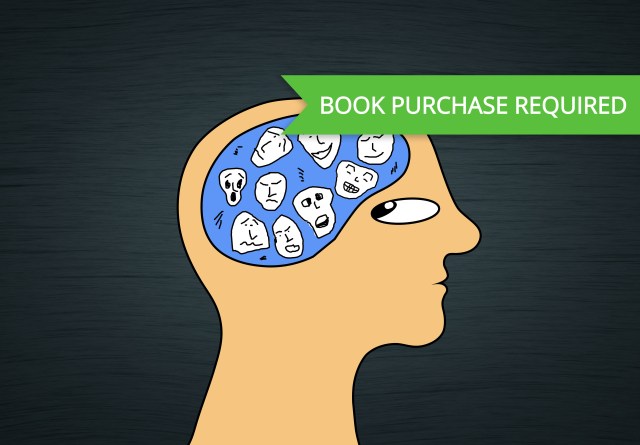Course summary
Practice Level: Intermediate
The birth of a new baby brings joy to many parents, but it can also cause unexpected emotions and thoughts. This is particularly true in mothers, who may experience anxiety, depression, and/or emotional distress during pregnancy and postpartum. Mental health providers can support patients struggling through the perinatal period by helping them to understand their “scary thoughts” (a term used to describe the upsetting thinking that can interfere with the wellbeing of a new mother), normalizing their experience, and assessing the severity of their distress. Dropping the Baby and Other Scary Thoughts, 2nd Edition provides essential information that both the client and the treating therapist can use when dealing with intrusive, negative, and unwanted thoughts. The purpose of this intermediate level course is to prepare psychologists, counselors, social workers, and marriage and family therapists to support perinatal women experiencing “scary thoughts”.
Clinicians can use the information presented in this learning material to identify clients experiencing perinatal distress and determine appropriate treatment options that reflect the needs of those clients. It also helps providers recognize not only professional treatment options, but also self-help strategies that may reduce negative feelings in the clients they are supporting. Other topics covered include the role of support systems and support considerations for diverse parents and clients from different cultural contexts. Upon completion of this course, providers will be able to screen and assess for perinatal anxiety and depression as well as recommend and support with interventions intended to improve anxiety and depressive symptoms in perinatal women.
Course Format
This course is based on a book that can be purchased here and a posttest. When you’re ready, purchase the test by clicking the “Add To Cart” or “Enroll” button. This will let you take the test and receive your certificate for CE credits.
Learning Objectives
1) Identify the different presentations of anxiety and depressive disorders in perinatal mothers.
2) Describe the nature, prevalence, and effects of “scary thoughts” in perinatal women.
3) Discuss factors that may increase a woman’s vulnerability to experiencing “scary thoughts” during the postpartum period.
4) Recognize the symptoms of anxiety-related and depressive psychiatric disorders that may present in perinatal mothers.
5) Explain the cognitive, societal, and symptomatic barriers that may deter a woman from disclosing her perinatal distress.
6) Describe screening practices that mental health providers can use when providing support to perinatal mothers.
7) Discuss responses, self-help strategies, and nonprofessional interventions that may help improve anxiety and depressive symptoms in perinatal women.
8) Identify elements of the cognitive model and strategies that may help perinatal patients reduce distressing thoughts and emotions.
9) Discuss the concept of acceptance as a means to reduce suffering among perinatal women in distress.
10) Describe psychotherapy and medication interventions available to treat perinatal women seeking professional support.
11) Differentiate the mechanisms of practical, emotional, and psychosocial support systems beneficial to the physical and psychological health of perinatal women.
12) Recognize how family roles, life experiences, and cultural contexts may influence the development and presentation of perinatal anxiety and depression in parents.
13) Identify strategies that are recommended to perinatal women trying to cope with and break the cycle of “scary thoughts”.
Course Syllabus
A Mother’s Anxiety
A Closer Look
Why Am I Having Scary Thoughts?
How Do You Know If You Need Help
Barriers to Relief
Screening for Scary Thoughts
Things You Can Do to Feel Better
Can You Really Change How You Think?
Working Toward Acceptance
Professional Treatment Options
How Others Can Help
Recognizing the Needs of Diverse Parents
Your Personal Treatment Plan
Authors
Karen Kleiman, MSW, LCSW
Karen Kleiman, MSW, LCSW is the founder of the Postpartum Stress Center, LLC, The Karen Kleiman Training Center, LLC, and an international expert on the topic of postpartum depression and anxiety. She has been treating pregnant and postpartum women and their families for over 36 years and offers advanced post graduate training to clinicians in this area.
Amy Wenzel, PhD, ABPP
Amy Wenzel, PhD, ABPP, is owner and director of the Main Line Center for Evidence-Based Psychotherapy. She is the author or editor of 24 books and treatment manuals and has authored over 100 peer-reviewed journal articles and book chapters and has been featured in many video demonstrations published by the American Psychological Association. She has held faculty positions at the University of Pennsylvania School of Medicine, the University of North Dakota, and the American College of Norway. Her research has been funded by the National Institutes of Health, the American Foundation for Suicide Prevention, and the National Alliance for Research on Schizophrenia and Depression (now Brain & Behavior Research Foundation). She is on the Scientific Advisory Board of the American Foundation for Suicide Prevention and the editorial boards of Cognitive and Behavioral Practice and the Journal of Rational-Emotive and Cognitive-Behavior Therapy.
Hilary Waller, MS, LPC and Abby Adler Mandel, PhD
Hilary Waller, LPC, is the director of programming at The Postpartum Stress Center. She provides continuing education for maternal health care providers in the identification and treatment of perinatal mood and anxiety disorders and leads advanced trainings for professionals from around the country. Abby Adler Mandel, PhD, is an assistant professor in psychology at the Catholic University of America and an adjunct faculty member at the Beck Institute for Cognitive Behavior Therapy. Her areas of research and clinical expertise include depression, anxiety, suicide prevention, and cognitive behavior therapy.
Accreditation Approval Statements
CE4Less.com is approved by the American Psychological Association to sponsor continuing education for psychologists. CE4Less.com maintains responsibility for this program and its content.
CE4Less.com, provider #1115, is approved as an ACE provider to offer social work continuing education by the Association of Social Work Boards (ASWB) Approved Continuing Education (ACE) program. Regulatory boards are the final authority on courses accepted for continuing education credit. ACE provider approval period: 08/08/21-08/08/24. Social workers completing this course receive 15 clinical continuing education credits.
CE4Less.com has been approved by NBCC as an Approved Continuing Education Provider, ACEP No. 6991. Programs that do not qualify for NBCC credit are clearly identified. CE4Less.com is solely responsible for all aspects of the programs.
Courses have been approved by CE4Less.com, as a NAADAC Approved Education Provider, for educational credits. NAADAC Provider #91345 CE4Less.com is responsible for all aspects of the programming.
We are committed to providing our learners with unbiased information. CE4Less never accepts commercial support and our authors have no significant financial or other conflicts of interest pertaining to the material.


